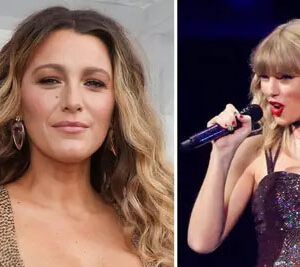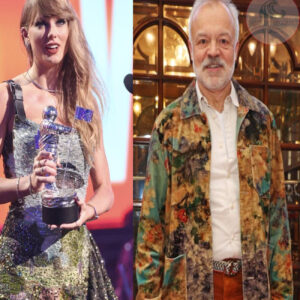A new book of portraits by famed photographer Cecil Beaton sheds light on how the royals were portrayed in the mid-20th century
:max_bytes(150000):strip_icc():focal(749x187:751x189):format(webp)/Cecil-Beaton-book-112023-tout-f641ed2c117e4bb5ab6c998d135922a0.jpg)
The then Princess Elizabeth in a formal, and floral, portrait for Cecil Beaton in March 1945. PHOTO: © CECIL BEATON / VICTORIA AND ALBERT MUSEUM, LONDON
Cecil Beaton’s images became some of the most iconic of the late Queen Elizabeth.
From those of her as a young woman growing up alongside her younger sister Princess Margaret to her coronation portrait in 1953, the images enraptured the world fascinated by the young monarch.
Now, Beaton’s impact is being celebrated in a stunning collection of some of the most historic vintage portraits of the late Queen, and Cecil Beaton: The Royal Portraits sheds some light on how Elizabeth and her parents used the then-new media to communicate with the world.
“No other photographer can offer such a comprehensive and longstanding document of the British monarchy than Cecil Beaton,” says author Claudia Acott Williams, whose book is out now. “Significantly, during the half-century in which Beaton occupied the coveted role of royal photographer, the world, and with it the monarchy, underwent considerable change: the Second World War, the decline of the British Empire, the advent of television, the birth of the paparazzi, three reigns and sweeping social change.”
“Beaton’s evolving approach to his royal work encapsulates not just a document of a growing family, but of the changing social and political climate of the twentieth century,” Acott Williams adds. He helped “revitalize the royal family image through a period of great change.”
The photographer’s “work is one of the most thorough documents of her childhood and early reign,” Acott Williams says.
:max_bytes(150000):strip_icc():focal(638x482:640x484):format(webp)/Cecil-Beaton-book-112023-6-b722d361c73441eba382ea6ec29a16da.jpg)
Cecil Beaton The Royal Portraits is out now.COURTESY OF THAMES & HUDSON
Beaton enjoyed access to the family because of a close relationship with the Queen’s mother, also named Elizabeth. He had “an immediate chemistry with her,” says Acott Williams. “They moved in similar social circles and shared a joie de vivre.”
But he found the soon-to-be new Queen harder to get to know. “I don’t think Beaton and the Queen ever shared that same natural friendship — he spoke about finding their relationship more formal and being in slight awe of her — but there was a trust that came from the fact that he had photographed her from a young age,” adds Acott Williams.
After the death of Queen Elizabeth’s father, King George VI, in 1952 and her own accession as a 24-year-old monarch, his “presentation of family, and of royal motherhood in particular, was one of Beaton’s greatest strengths, creating an unprecedented intimacy and point of connection between monarchy and public, which in my view has not been rivaled since,” Acott Williams adds.
Here, Acott Williams, who is a collections curator at Historic Royal Palaces, talks about five key images from the book.
:max_bytes(150000):strip_icc():focal(488x635:490x637):format(webp)/Cecil-Beaton-book-112023-1-9cb83a99136a427bbc06ec625bf50033.jpg)
The then Princess Elizabeth with her son Prince Charles at Clarence House in Sept. 1950.© CECIL BEATON / VICTORIA AND ALBERT MUSEUM, LONDON
The first is from a shoot commissioned to mark the birth of Princess Anne at Clarence House in 1950. “But it’s the photographs of two generations of royal heirs that are most special.” There is a “spontaneity” about the shot, she says.
“They’re some of the most relaxed of Beaton’s portraits of the future Queen, perhaps because she was, at the time, still a monarch-in-waiting, perhaps because Prince Philip, who did not much approve of Beaton, was conveniently absent, or maybe because there’s nothing like an unabashed toddler to dispel any pretense,” Acott Williams says.
“Often chosen to mark important royal milestones, Beaton was especially adept at tempering his irrepressible glamour with an intimate presentation of motherhood that helped generate an emotional affinity between the royal family and the public.”
:max_bytes(150000):strip_icc():focal(593x784:595x786):format(webp)/Cecil-Beaton-book-112023-4-aae24b230e25428aa36f5a997eb84621.jpg)
The Princesses Elizabeth and Margaret with their parents and corgis at Windsor Castle in 1943.© CECIL BEATON / VICTORIA AND ALBERT MUSEUM, LONDON
This second picture shows King George VI, his wife and his daughters walking away from the camera at Windsor Castle with two or their corgis. Acott Williams says that “among the dutiful wartime images of the family smiling stoically for Beaton’s camera,” this one jumped out because “it appears to take the viewer behind the façade and make them complicit in a rare playful moment.”
“There’s a relatability — even a vulnerability — in seeing them from behind: the visible seam of Princess Margaret’s stockings, the cardigan thrown over her shoulders, Queen Elizabeth’s casual gait and the eager, unchoreographed trail of corgis that follow. Similarly, the architecture of Windsor Castle seems to dwarf its inhabitants and there’s a sense that Beaton has captured a brief moment when the official countenance falters.”
:max_bytes(150000):strip_icc():focal(636x377:638x379):format(webp)/Cecil-Beaton-book-112023-3-b991baa1bbeb484486884db7b0409c3a.jpg)
The then Princess Elizabeth at Windsor Castle in March 1945.© CECIL BEATON / VICTORIA AND ALBERT MUSEUM, LONDON
The third image shows the late Queen Elizabeth amid floral display at Windsor Castle in 1945 and demonstrates “Beaton’s extraordinary ability to craft a powerful narrative through his photographs,” Acott Williams says.
“It is so striking now to see a young Elizabeth, posed perhaps like any other aristocratic teenager, but the portrait is interwoven with messaging.”
The carnations symbolize her devotion to duty and the “romantic Fragnoard backdrop” is the same that her mother and aunts were photographed in front of before the war.
Elizabeth is also wearing one of her “mother’s sequined Norman Hartnell evening gowns,” Acott Williams notes. “Taken in 1945, when the end of the Second World War was in sight, this return to pre-war glamor serves as a herald of peace and conveys a certain defiance in the face of adversity, designed to bolster British morale.”
:max_bytes(150000):strip_icc():focal(662x387:664x389):format(webp)/Cecil-Beaton-book-112023-5-848872dfa4844503bfd444da0d2a943d.jpg)
Princess Elizabeth shot by Cecil Beaton for the cover of Life magazine in Feb. 1943.© CECIL BEATON / VICTORIA AND ALBERT MUSEUM, LONDON
This fourth image marked the then-Princess Elizabeth’s entry into public life at just 16 years old. World War II had “prompted an earlier accession to formal duties than might have been the case in peacetime,” Acott Williams adds. “The royal family played a significant role in galvanizing the British war effort and the princesses were no exception.” In 1942, George VI gave his daughter the title of Colonel of the Grenadier Guards, the first time in history that a woman had been given such a senior position.
“Emphasis on her registration for national service alongside others of her age helped cast Princess Elizabeth as an emblem of the public service of her generation.”
:max_bytes(150000):strip_icc():focal(492x723:494x725):format(webp)/Cecil-Beaton-book-112023-2-6181321dde9740b29a31f41a750f1162.jpg)
Princess Elizabeth in playful pose with Prince Charles at Clarence House in 1950.© CECIL BEATON / VICTORIA AND ALBERT MUSEUM, LONDON
The last charming image of Elizabeth with her son Charles at Clarence House in 1950 comes at a time when Beaton had been photographing the royal for eight years.
“It is evident here that there is a trust and an ease in front of his lens. The extraordinary pose may well have been spontaneous but what is much more likely is that it was designed to emulate one of the most widely-reproduced photographs of the previous century which showed Princess (later Queen) Alexandra giving a piggyback to her own daughter,” Acott Williams suggests. “The pose was later copied by Elizabeth’s grandmother, Queen Mary, and once again gives a subtle nod to a visual continuity in the royal image.”
Can’t get enough of PEOPLE’s Royals coverage? Sign up for our free Royals newsletter to get the latest updates on Kate Middleton, Meghan Markle and more!
And the sitting was especially poignant for Acott Williams as she was studying the original prints in the contemplative silence of the Victoria and Albert Museum’s archive she heard that the Queen had died on Sept. 8, 20022. “As the news flashed up on my iPhone screen, the familiar broad smile of a then 24-year-old Princess Elizabeth beamed up at me in multiples from the prints spread out on the table.”
“As I contemplated the end of Britain’s longest reign surrounded by photographs taken two years before if began, I was struck by how influential Beaton’s photographs and writings have been in our understanding of the woman behind the crown.”
Relative Articles
None found





